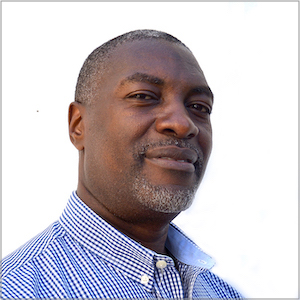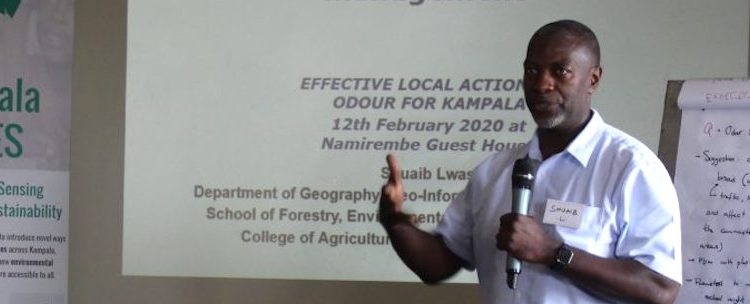“I have been invited to consult and engage with international organizations such as the United Nations Office for Disaster Risk Reduction and the International Science Council, because of the visibility of scientific outputs stemming from START initiatives.”

Shuaib Lwasa is an esteemed professor at Makere University, Uganda, involved in a variety of local, regional and international research and assessment efforts, including those of the Intergovernmental Panel on Climate Change (IPCC).
At Makere University, Shuaib leads the Urban action lab, “a platform for engagement with ministries, communities, NGOs, and international think tanks,” explains Shuaib. “We are currently working with international partners on three projects on climate change adaptation, climate change and health in vulnerable communities, and inequalities and systemic factors that amplify challenges posed by climate change.”
Shuaib’s long standing journey with START began in 2001, when he attended a START advanced institute training in Austria. In the following years, he received a Global Environmental Change grant, and mentored fellows under the African Climate Change Fellowship Program (ACCFP). He later participated in the Assessments on urban and peri-urban agriculture program as a reviewer for the Kampala, Uganda project. START also nominated Shuaib as a contributor to the IPCC Sifth Assessment Report (AR6).
“The involvement with START has been a very important building block in my career,” explains Shuaib. “It helped shape my understanding of complex issues related to global environmental change. The advanced institute, for example, provided a key foundation for building a knowledge base on issues that are of importance at both local and global levels.”
Through his involvement with START Shuaib has been able to work at both local and global scale and to bridge these two worlds. “That has been a powerful insight for me. I now look at my work not only as a set of applied research activities for Kampala, Uganda, but as an effort to build knowledge that is connected and useful to a broader context,” continues Shuaib.
“The more I participate in global processes, the more I value the importance of being involved at the local level – the global discourse and discussions depend very much on knowledge generated locally,” explains Shuaib. “Unfortunately, although there have been improvements in the representation of researchers from the global south, they still tend to be marginalized and there is still much to be done to ensure that they can engage and contribute substantively.”
Shuaib attributes his career advancement in part to his involvement with START. For example, he was fast tracked for promotion to associate professorship thanks to some of the outputs produced with START. “I have been invited to consult and engage with international organizations such as the United Nations Office for Disaster Risk Reduction and the International Science Council because of the visibility of scientific inputs stemming from START initiatives.”
“START programs are unique because they enable the creation of a community of practice that doesn’t stop after the end of the project,” says Shuaib. “For instance, a very active alumni platform continued to network informally after the end of the ACCFP project, because of the foundation that was created by START.”
“Other capacity development programs should follow this model as well. START does not just train early career researchers on how to conduct research; but it also introduces them to novel methodological approaches and conceptual thinking, and then provides them with opportunities to apply the techniques and skills acquired during the training and a platform to engage after the end of the program.”



